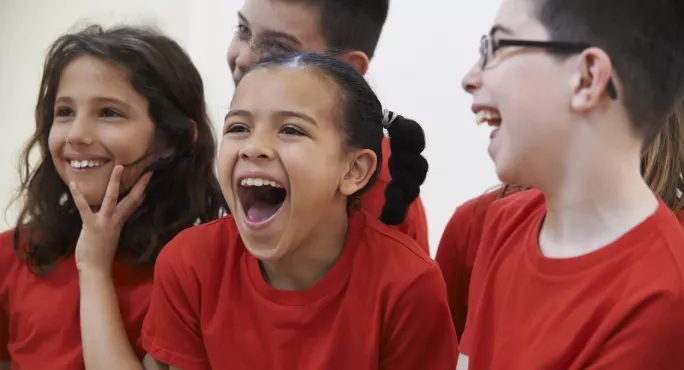We’d all benefit from more laughter in our classes

When you’re being bombarded with assessment targets and objectives, you can be forgiven for not feeling like Billy Connolly.
As you watch another deadline sail merrily past and you’ve got reports that you haven’t started to write and a child is telling you that they have eaten their pencil shavings, nobody is saying you should channel Sarah Millican.
But we don’t talk enough about the role that humour can play in the classroom. You won’t find it on any official observation pro-forma and I haven’t heard an Ofsted inspector set it as a target, and yet its power is transformative.
More:
I know that from bitter experience. As a new teacher, I was faced with a sullen, disengaged sixth-form group. They glared at me with facial expressions that suggested they were indifferent as to whether I lived or died, but, on balance, favoured the latter.
Whatever I tried, their scowling persisted. I’d like to say that it was my intellectual prowess that did the trick in the end, but it wasn’t. It was when one student somehow referred to Jane Austen as Shakira in an essay - she had been listening to Hips Don’t Lie while writing it, she later explained - and from then on Shakira references became a running joke in lessons.
Laughter in school classrooms
It wasn’t instant, but the frost thawed. In time we were able to work collaboratively and successfully towards a common goal. Shakira won’t be aware of it, but in that moment she provided the impetus to get us out of that rut.
The shared laughter humanised us and that proved a turning point. Ever since I have been trying to rid myself of the image of Austen on the dancefloor in a short skirt, hips gyrating to a salsa beat.
Finding the fun
The truth is that their hostility was partly my fault. I was so wrapped up in lesson timings and differentiating my targets and monitoring progress that I had forgotten the most crucial thing of all - get to know your students.
Years later, the feedback I most often gave to new teachers when I observed their lessons was, “You’re great, so try to relax into it - enjoy it, find the fun.”
Because talking about the value of humour in lessons is really just another way of saying, “Build strong relationships with those you’re teaching.” It’s not the only way you can do that, of course. But it’s a good one. And it’s a reminder that there is more to life in the classroom than data and targets. It’s really all about people, and connecting.
Building a rapport
I am not an educational researcher, so I can’t offer you evidence, but there is no doubt in my mind that humour can help you form a rapport with a class, and that, in turn, makes them more prepared and willing to learn.
But it’s more than that. We all know that there is a lot of nonsense that comes with teaching. New initiatives flow from the powers-that-be like a heavily polluted river, sweeping away your time, your energy and, unless you’re careful, the passion and joy you felt when you went into teaching.
For me, it was the golden moments in the classroom that were, at times, the saving grace.
The time a child wrestled valiantly to get into his PE top only to realise some minutes later that he had brought a pillowcase with him by mistake.
The day a girl responded to an exam question that asked what conclusions she could draw with an actual drawing.
The lesson when a child proudly declared that his favourite Shakespeare play was James and the Giant Peach.
The beauty of teaching is that you don’t have to be a stand-up comedian; pupils present the funny situations on a platter. I’m not talking about laughing at children, and certainly not cruelly. But sharing the delight of those stories in the staffroom, finding the humour in the everyday, is a coping mechanism that played no small part in keeping me in the profession.
I’d love to see more laughter in classrooms and corridors, staffrooms and playgrounds. Teaching is a tough job, no doubt about it, but that makes laughter all the more important.
Embracing the funny can make us better teachers and better colleagues, and give the children in our charge a better experience. It’s about time we took humour more seriously.
Ryan Wilson is a former English teacher. His forthcoming memoir of his teaching career is called Let That Be a Lesson. It’s published by Chatto & Windus on 19 August and is available to pre-order now
Register with Tes and you can read two free articles every month plus you'll have access to our range of award-winning newsletters.